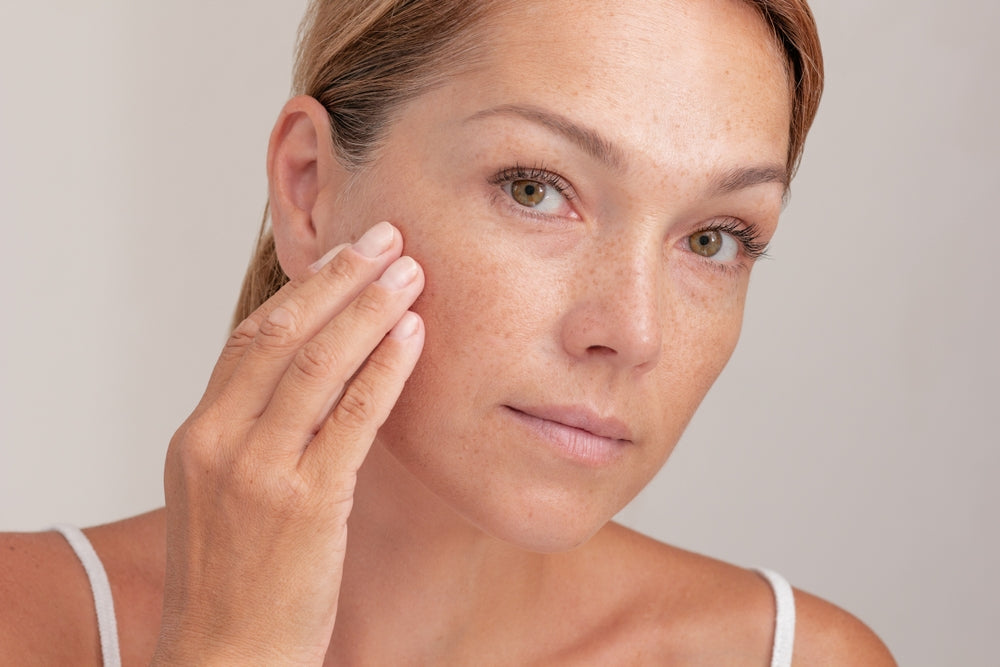Often used interchangeably, sunscreen and sunblock are technically two distinct ways of protecting your skin from the harmful ultraviolet (UV) radiation that the sun constantly emits. We’ll explore how each type works and learn whether one is better than the other for your skin and the world around you.
What is Sunblock?
Sunblock is the term for physical or mineral sunscreen that physically reflects UV rays away from skin using ingredients like zinc oxide or titanium oxide. These products are usually opaque and they sit on the surface of skin, which can feel uncomfortable or greasy, but a well-formulated product like the sunblock developed by Epicuren feels lightweight and barely noticeable as it helps to naturally protect your skin against UV-related damage.
What is Sunscreen?
Unlike sunblock, sunscreen relies on a chemical reaction happening within the uppermost layers of the skin to absorb UV light and convert it into harmless heat energy. The chemical reaction occurs thanks to active ingredients like avobenzone, para-aminobenzoic acid (PABA), and oxybenzone. Some of these chemicals, unfortunately, can cause damage to the environment when they’re washed into lakes and the ocean, but scientists are still looking into the significance of these observations.
Which is Better, Sunblock or Sunscreen?
It’s important to note that both sunblock and sunscreen are safe and effective ways of protecting your skin from UV rays. However, there are a few things to consider. First, the ingredients in many commercially available sunscreens can cause irritation or other reactions to sensitive skin types. For people with a known allergy to these products, sunblock is usually better tolerated.
Second, sunblock is naturally broad-spectrum, meaning it blocks both UV-A and UV-B rays, which pose different threats to your skin. Sunscreen must have multiple active ingredients to be broad-spectrum, so for assurance that you’re fully protected in the sun, try a mineral sunblock.
What Sun Protection is Recommended by Dermatologists?
First and foremost, dermatologists recommend any sunscreen over no sunscreen. Beyond that, many dermatologists recommend finding a formula that is unscented, as ingredients in perfumes and other chemical additives may cause allergic reaction or irritation. They also say to get a broad-spectrum formula, an SPF (sun protection factor) of at least 30, and water-resistance for the best performance.
Both sunscreen and sunblock lose effectiveness over time as the active ingredients break down or are wiped away. This means it’s important to reapply your chosen formula at least once every two hours — more if you’re sweating or have been in the water.
Professional-Grade Sun Care by Epicuren Discovery
Discover the best in sun care protection with Epicuren Discovery’s sunscreens and sunblocks. With the bottom line that both types of protection are an effective option for you, you can choose whichever type of sun protectant your skin finds the most satisfying. There are even blends of both mineral and chemical sunscreen, like our X-Treme Cream Propolis Sunscreen with an SPF of up to 45. We also carry sunscreens like our Defend and Balance tinted sunblock that contains hydrating ingredients and antioxidants such as Vitamin C, Vitamin E, Green Tea Extract and Kukui Nut Oil. Whatever you choose, you can purchase with pride with Epicuren Discovery’s cruelty-free formulas. Find more professional-grade skincare products by taking our Skin Quiz today.





